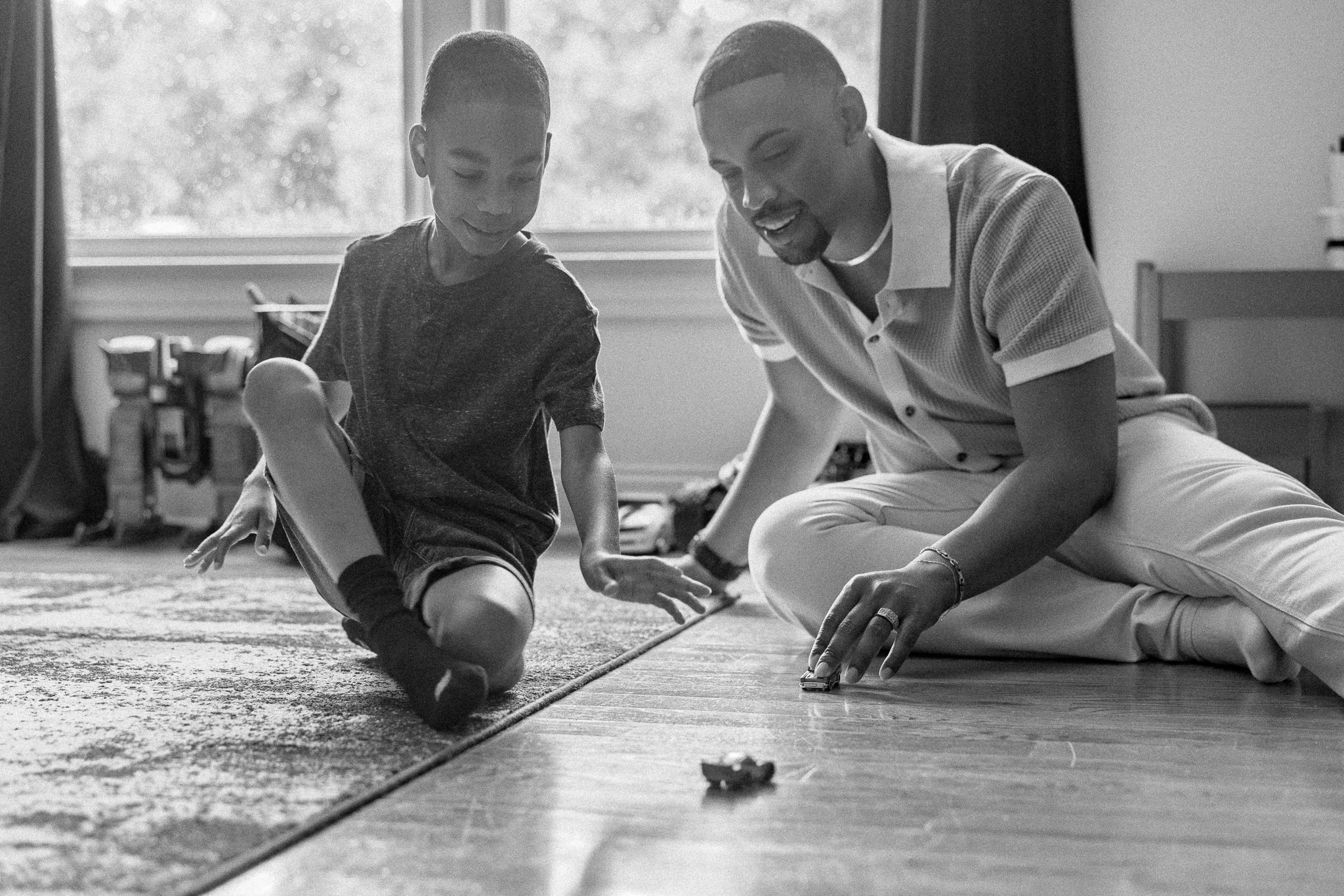
bohoelle_USED
Dr. Ally teaches us about our triggers, how to work through or avoid them and how to handle uncomfortable situations, confrontations, and arguments like a pro.

Dr. Ally
You’re about to read an article about arguing. You may wonder why you would need to read such an article. Why would you need to listen to me at all? What makes me an authority? My name is Dr. Ally and I’m a Mental Health Expert. I combine my personal experiences and professional expertise to offer an honest perspective on what it takes to create and keep a healthy relationship, and this includes communication. I married my best friend two-and-a-half years ago, and I’ve worked hard to make myself a person worth spending time with. We all should. Going to a therapist isn’t something that everyone is comfortable with, but I hope that I can share lessons, tools, and perspective on how to argue productively and effectively that allow you to find the deepest love possible with yourself and with potential partners.
How do YOU argue?
We all know what an argument is and we all have different reasons for allowing ourselves to get caught up in one. But we may not understand why we are so susceptible to them.
The answer is simple – triggers. Triggers are built into us like dials on an old radio. Twist a dial a little too far in one direction or the other, and all you hear is static. But what do we do when the static state emerges, when all we see is red, and the world begins to close in on us?

Courtesy of Elle Danielle Photography
During my single years, I was a serial dater. There is a long list of fabulous and not so fabulous gentlemen that have held a special place in my heart, but one man in particular helped me reshape the way I argue forever. He and I dated for about two years, lived together, and we both had severe anger issues.
I’m a screamer notorious for making condescending comments, and an occasional thrower of objects. He was a rage machine, emotional assaulter, and injustice collector. Throw that all together and you get regular week-long fights which resulted in lots of hurt feelings and a strong bond birthed through trauma. At times, these fights would get so bad that I found myself literally avoiding every topic that could be perceived as serious as to hold our house of cards of a relationship together.
It got to the point where he was screaming for days, and I was quietly fuming in the corner. This, for anyone that knows me, is not at all my personality. However, it was at this point that I learned that controlling my anger didn’t mean losing my autonomy or self-respect – it actually made it more likely that I got the outcome I wanted.
Separating myself from the argument allowed me to navigate and solve problems rather than becoming part of the problem.
As mindfulness trainers often say, I learned how to watch the train go by rather than getting run over by it or jumping on board and getting taken away.
Here are a few ways to create the space needed to avoid having that argument that changes everything.
3 Things to Avoid When Having a Serious Conversation:
“I told you so.”
There will never be a situation where telling someone “I told you so” will further the conversation. When you notice the urge to blurt out this useless and often argument-inducing statement, ask yourself why you want to say it and whether or not saying it is fulfilling a need for you. I promise you that it is more about you than the other person. So, check your self-esteem and need for praise at the door, and patiently listen to your friend or loved one with empathy.
The past
Let the past go and focus on the fight at hand. When you’re in the midst of an argument, it’s so tempting to bring up something your partner did three years ago that kinda reminds you of this moment.

Courtesy image
But you have to hold yourself back. There are a few reasons why you should avoid throwing past transgressions in your partner’s face, but the most important is simple – your memory sucks. Our minds tend to hold on to generalized and highly romanticized versions of actual events. So, no matter how sure you think you are about what your significant other said, it was most likely a little different. Bringing up your perfect recollection of the events will never honestly get you where you want to be. It will only pull you back into an argument you’ve already argued and can’t accurately remember. It’s not worth anybody’s time.
Name-calling
Sure, your mom told you to never call anyone out of their name. And yeah, name-calling is generally offensive and usually changes the tone of a conversation completely. The main reason that you and your partner should avoid name-calling in arguments is because it actually diminishes your point by straying away from specifics and into the realm of generalities. This is a tough problem to fix if you don’t fully understand what the root of the problem actually is.
So, calling someone “childish” doesn’t really fully explain the problem. Is your partner or loved one playing on the jungle gym, forgetting to complete their homework, or playing with their friends too much? Once you use a name or label, you are distancing yourself from having an honest conversation full of exactly what you mean. Rather than calling them “childish,” just say what you really mean like, “I am very frustrated and sad because you don’t include me in conversations about our finances…it makes me feel left out.”
That information was not conveyed by using the term “childish” at all, yet it was clear, concise, respectful, and lends itself to an honest conversation – not an argument. Be specific. Sit down and actually understand what it is you want to say.
3 Things You Should do During a Serious Conversation:
Stay focused on the topic at hand
During an argument, it is extremely tempting to bring up the other 15 gripes you have had all week, but you need to resist this urge and stay focused on the current disagreement. You should sound like a broken record if your partner tries to distract you with other conversations or issues. Treat this as a practice in focus. Once you’ve come to a realistic consensus, one that works for both of you, then you can move forward to other areas of frustration.

Courtesy of @brownkids
Let go of your anger and tap into your empathy
If the person you are with cares about you and your relationship is healthy, you should consider using empathy in your arguments. Understanding where your partner is coming from by understanding their past can help defuse anger. For example, imagine someone cut you off on the freeway and honks wildly. Your first response may be to blare your horn back, pull up beside them, and yell or engage in road rage. But if you knew that their only child had just been critically injured and they were rushing to the hospital, it may change the way you respond.
The only problem is we don’t often know why people do what they do because people honestly don’t often understand their own motivations. It’s up to us to hold esteem and empathy for all creatures and give people the benefit of the doubt that they would act differently if they had the skills required. Take a deep breath, tap into your empathy, and teach your loved one how to treat you.
Treat people the way you would want to be treated
No one wants to be talked down to, belittled, or cursed at. If you wouldn’t want that behavior aimed at you then don’t direct it to others. Use a tool that I frequently use – right speech. It maintains that you have true, kind, and necessary conversations. Is what you are about to say truthful? Or is it self-serving or inaccurate? Is what you are about to say kind? If it isn’t kind, consider rewording your view. You don’t have to throw out the whole conversation, just work to make it kinder. Then lastly, is it necessary? Do you even have to engage in this conversation? If not then just move on. Yes, truly move on and continue loving your partner. Always remember that before having difficult discussions, ask yourself if what you’re going to say is true, kind, and necessary. If it’s not all three, then reconsider or rework the upcoming dialogue.
Life is complicated, and we have many challenges to conquer. Having a partner at home to battle day in and day out should not be one of them. Work to improve your communication, and it will improve more than just your intimate relationships.
Related Articles
Bozoma Saint John talks Black motherhood, grief, self-love, and finding joy again. Don’t miss her powerful conversation on building legacy and living boldly.
Tyler Lepley shows the beauty of Black fatherhood, blended family life with Miracle Watts, & raising his three children in this Father Noir spotlight.
Black fathers Terrell and Jarius Joseph redefines modern fatherhood through love, resilience, unapologetic visibility in this Father Noir highlight.
Featured Articles
When Elitia and Cullen Mattox found each other, they decided that they wanted their new relationship together, their union, to be healthier and different.
Celebrate their marriage and partnership with the release of the documentary “Time II: Unfinished Business”
The vision for our engagement shoot was to celebrate ourselves as a Young Power Couple with an upcoming wedding, celebrating our five year anniversary - glammed up and taking over New York.
Meagan Good and DeVon Franklin’s new relationships are a testament to healing, growth, and the belief that love can find you again when you least expect it.
Our intent is to share love so that people can see, like love really conquers everything. Topics like marriage and finance, Black relationships and parenting.
HEY CHI-TOWN, who’s hungry?! In honor of #BlackBusinessMonth, we teamed up with @eatokratheapp, a Black-owned app designed to connect you with some of the best #BlackOwnedRestaurants in YOUR city – and this week, we’re highlighting some of Chicago’s best!











